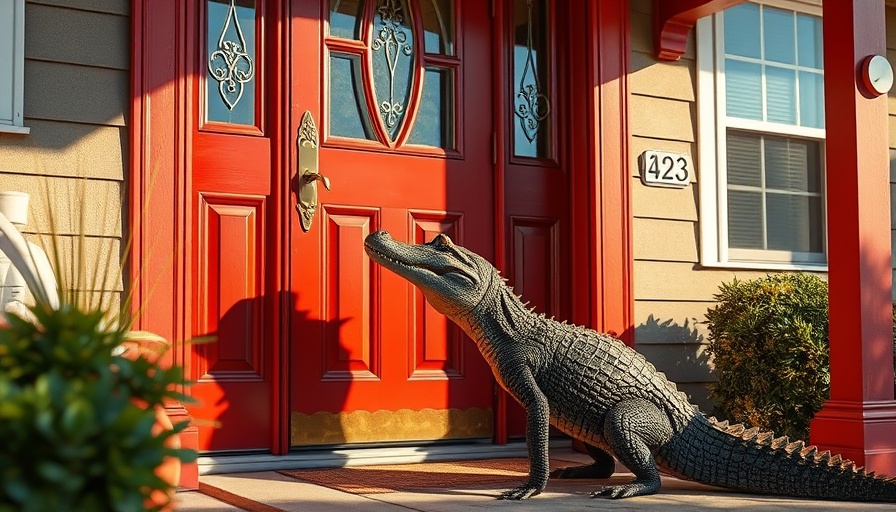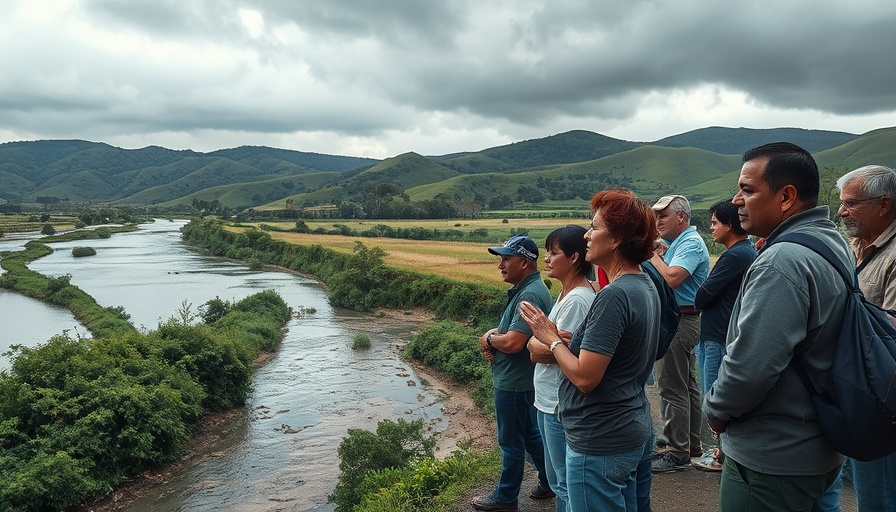
Florida's Unexpected Visitor: A Closer Look at the Alligator Incident
In a surprising turn of events that has stoked both amusement and concern, a doorbell camera in Florida recently captured an alligator standing on its hind legs, seemingly 'knocking' on a homeowner's door. This bizarre occurrence, a testament to the wild unpredictability of Florida's animal life, raises questions about wildlife interactions and safety in suburban areas.
The Surprising Reality of Florida's Wildlife
Florida is known for its diverse ecosystems, ranging from beaches and swamps to dense urban developments. With a growing human population encroaching upon their habitats, alligators and other wildlife are increasingly finding themselves in unusual situations. This incident illustrates how wildlife has adapted to human environments, seeking out food or shelter in unexpected places.
Why Are Alligators Approaching Homes?
As Florida’s population expands, alligators are losing their natural habitats, making homes and fenced yards attractive for food scavenging. With pet food left outdoors and trash bins easily accessible, these reptiles are often lured into residential neighborhoods. Homeowners must take precautions to secure their properties and reduce attractants that may invite alligators into their backyards.
What This Means for Residents
This incident not only highlights the adaptability of wildlife but also the importance of understanding coexistence. It serves as a reminder for Florida residents to remain vigilant and informed about local wildlife laws and safety practices.
Understanding Alligator Behavior
Alligators, particularly in urban areas, exhibit behavior that can seem harmless yet is inherently dangerous. The idea of an alligator 'knocking' may play into their natural curiosity and food-seeking behavior, but it emphasizes the need for residents to manage interactions proactively.
Expert Insights: Navigating the Dilemma
Wildlife experts recommend several strategies for homeowners to reduce encounters with alligators:
- Keep pet food indoors and secure trash bins.
- Install fences that are at least four feet high and difficult for alligators to scale.
- Be vigilant near bodies of water, especially during mating season when alligator activity may increase.
By taking these steps, residents can help limit the appeal of their homes to alligators and other wildlife.
The Broader Picture: Human-Wildlife Interaction
This incident shines a light on the growing necessity for communities to understand wildlife dynamics. Florida’s unique environment requires a blend of education, respect, and caution when dealing with the local fauna.
Final Thoughts
As wildlife continues adapting to urban settings, incidents like this alligator encounter highlight the delicate balance between human development and natural habitats. By staying informed and proactive, residents can maintain safety while respecting the creatures that share their environment.
 Add Row
Add Row  Add
Add 




 Add Row
Add Row  Add
Add 

Write A Comment